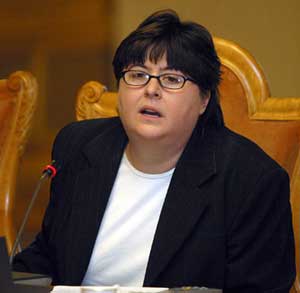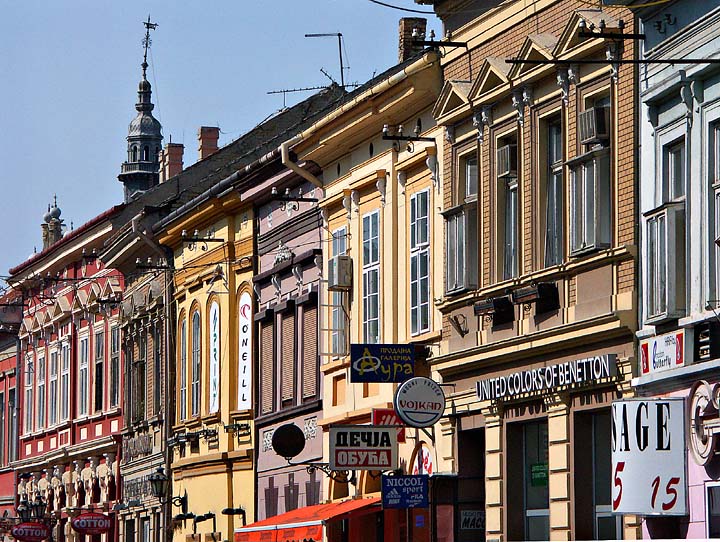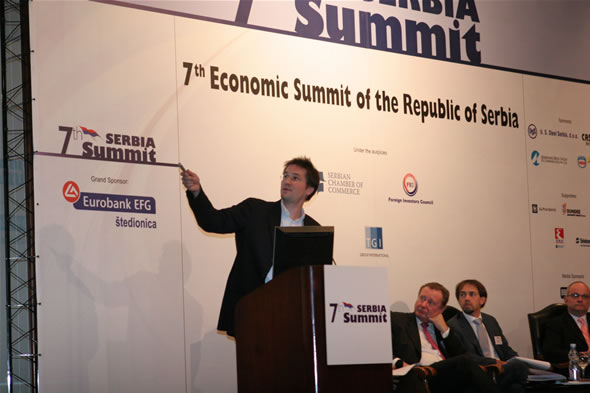I presented ESI’s research on recent economic and societal trends in Turkey, in particular the rapidly changing reality of Turkish women at an event jointly organised with the August Bebel Institut, the AK Frauenpolitische Bildung im Bildungswerk Berlin der Heinrich Böll Stiftung, and the Berlin Istanbul Network Kultur-Wissen-Stadt (BINKWS).
Inn this presentation, I talked on Turkey’s potential for accession to the EU, social and economic developments, the recent (legal) revolution of women’s rights, the German debate about Turkey and the role of the military. I also pointed out that these changes cannot only to be attributed to AKP’s legal reforms but are part of a wider democratisation process of Turkish society at large.
Berlin Radio Multikulti covered this event: “Has AKP’s view of women changed?” (Turkish only).
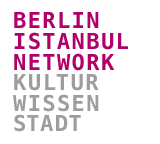  |

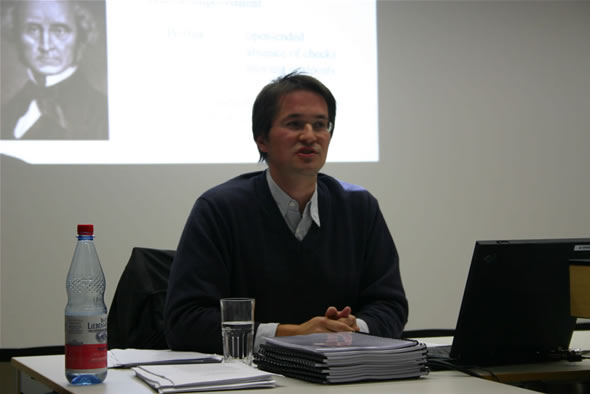
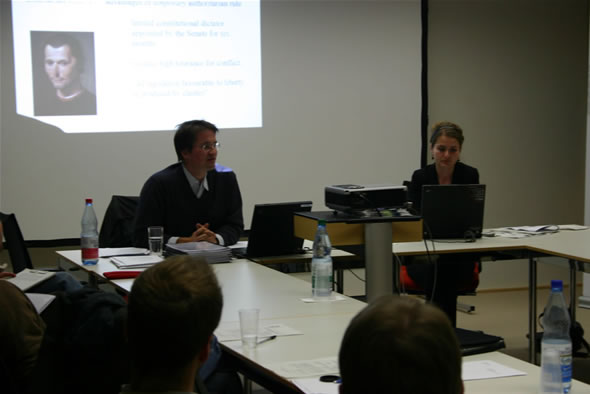
 Alina Mungiu-Pippidi, one of Romania’s leading social scientists and founder of the Romanian Academic Society has moved to teach at the Hertie School of Governance (HSoG) in Berlin where she invites me to give a presentation on Turkey’s potential for accession to the EU. Social and economic developments, the recent (legal) revolution of women’s rights, the German debate about Turkey and the role of the military were some of many areas I tried to cover.
Alina Mungiu-Pippidi, one of Romania’s leading social scientists and founder of the Romanian Academic Society has moved to teach at the Hertie School of Governance (HSoG) in Berlin where she invites me to give a presentation on Turkey’s potential for accession to the EU. Social and economic developments, the recent (legal) revolution of women’s rights, the German debate about Turkey and the role of the military were some of many areas I tried to cover.